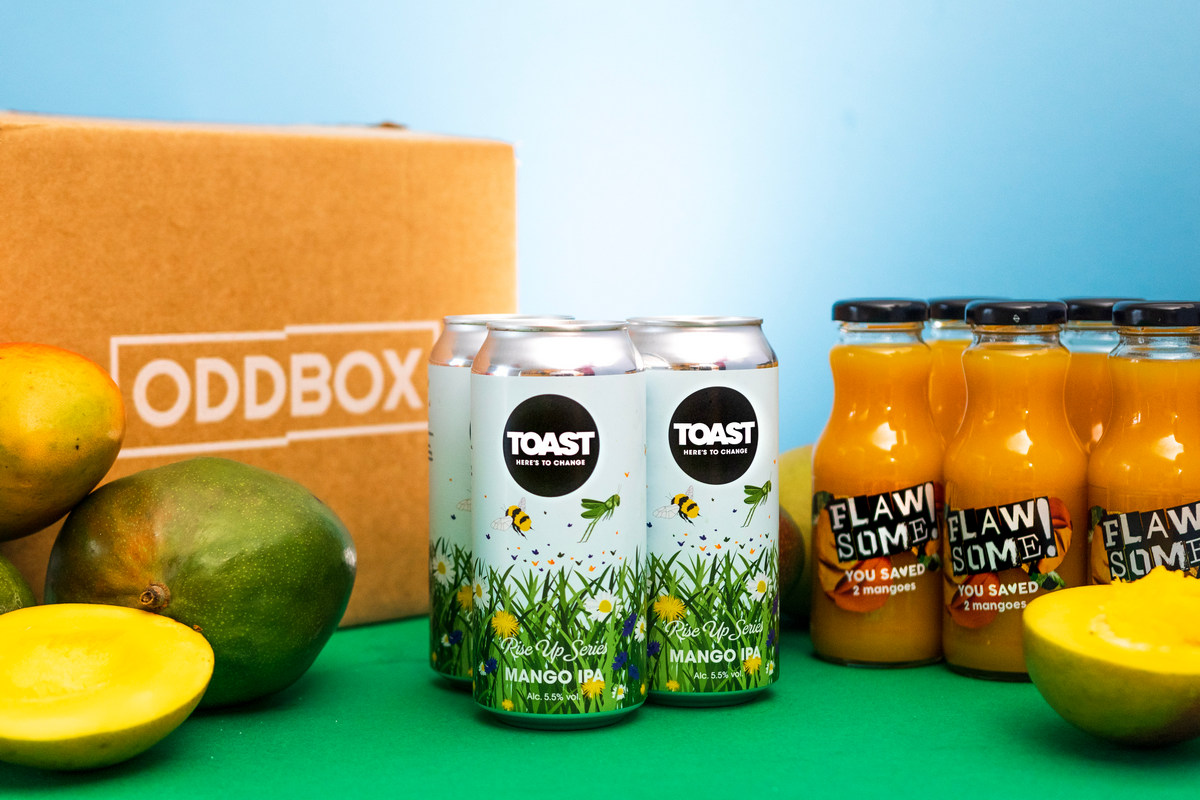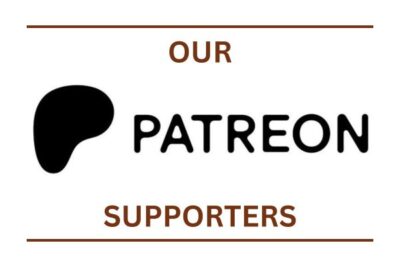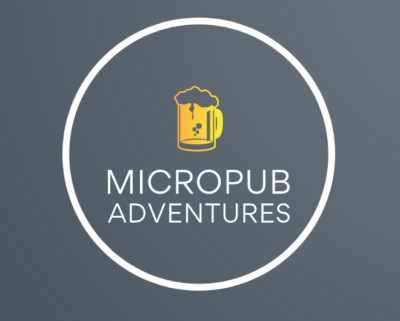Toast Ale is launching a new beer brewed with surplus bread and surplus, wonky mangoes. Mango IPA is a collaboration with UK veg box company Oddbox and fruit juice brand Flawsome as part of Toast’s Rise Up campaign for COP26.

Photograph: Toast Ale
The beer’s focus is on how we can reverse biodiversity loss by fixing the food system — starting with food waste. Food production is the biggest contributor to climate change and biodiversity loss, but one-third of all food is wasted. It is to be launched on Earth Day (Thursday, 22nd April).
Mango IPA is a limited-edition brewed with surplus fresh bread (as is Toast’s signature style) and surplus mangoes that would otherwise have been wasted. Sometimes there is more fruit available than the retailers order. And sometimes the fruit is too small, too big, or the wrong shape or colour.
For this beer, Oddbox sourced the ‘too many’ and Flawsome sourced and pulped the wonky. Toast’s beer is the fourth beer of its Rise Up series, which raises awareness about the environmental impact of our food system and celebrates the benefits to us all by supporting better, healthier ways of producing food.
The 5.5% ABV juicy India Pale Ale has a smooth mouthfeel and is lightly spiced to lift the sweetness of the mangos and oats. All profits go to the environmental charity Feedback, to support campaigning work.
Toast’s co-founder and chief operating officer, Louisa Ziane, said: “We’re really happy to be collaborating with our B Corp friends Oddbox and Flawsome to create a delicious beer that prevents mangoes from being wasted.
“We love to celebrate positive solutions to big problems, and ultimately reducing food waste is the simplest, most equitable action we can all be part of.”
• The beer will be available at toastale.com from Thursday, 22nd April, and at independent retailers.
What’s on the label?
“Industrial food production is destroying and polluting habitats, contributing to the mass extinction of species. But one-third of food is wasted. By reducing food waste and restoring nature, we can protect the diverse web of life on which we all depend.”


